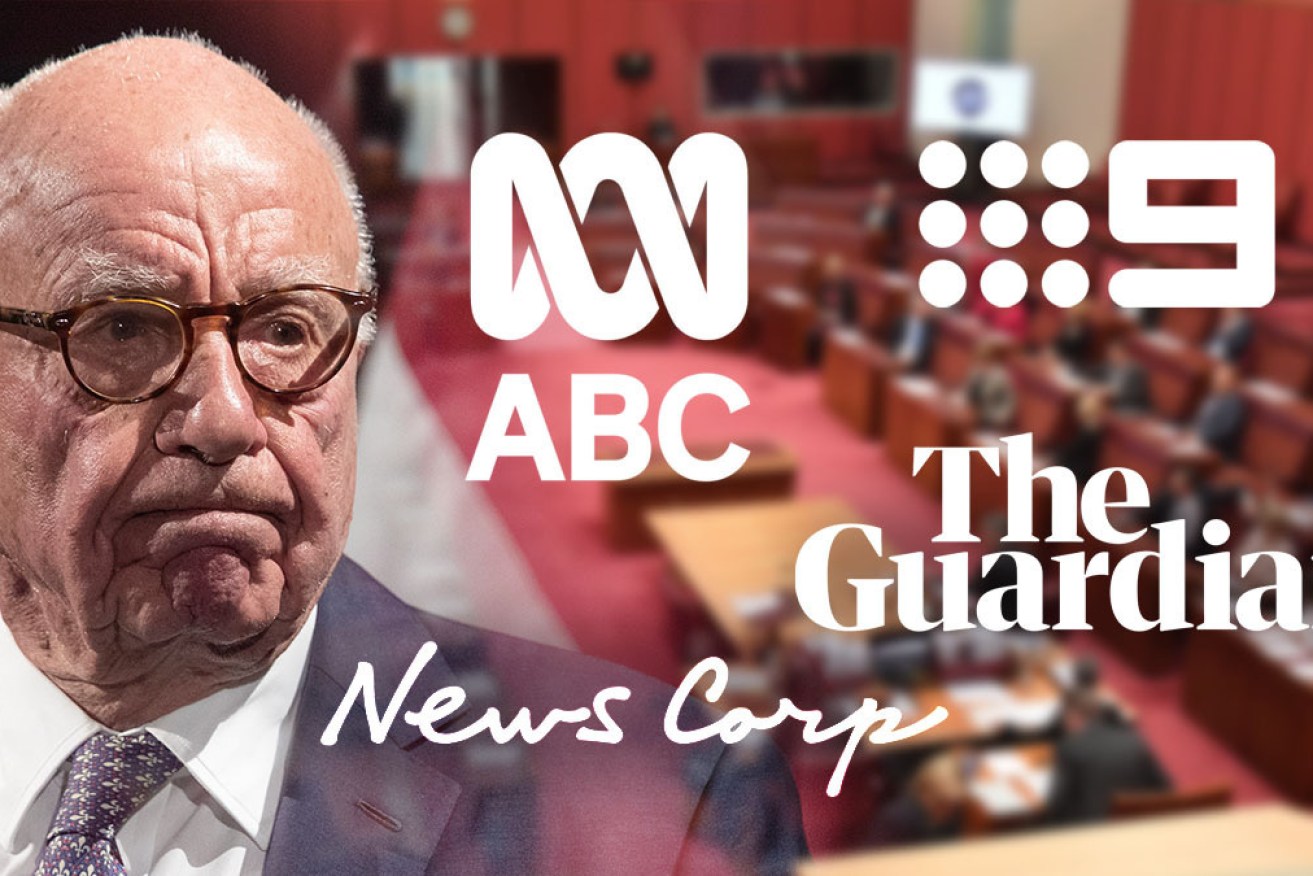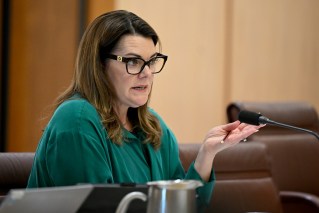Rudd v Murdoch: The ex-PM has won an inquiry into media diversity, but he won’t stop there


When it comes to Rupert Murdoch, Kevin Rudd has set his sights on more than just a Senate inquiry.
Kevin Rudd is waging war against Rupert Murdoch’s media empire, and he’s already seeing success.
The former Labor prime minister has won the support of an old adversary, launched Australia’s largest-ever parliamentary e-petition, and secured a Senate inquiry.
But he won’t stop there.
Mr Rudd is hoping the Senate inquiry turns into a royal commission – with more insight and power to bring change.
“The Senate has heard a clear message from more than half-a-million Australians that they want a royal commission to ensure the future strength and diversity of the Australian news media,” the former PM told The New Daily.

Kevin Rudd’s petition has garnered more than 500,000 signatures. Photo: AAP
“The question of whether or not the Senate should recommend a royal commission should weigh heavily on them.”
Mr Rudd hopes the inquiry will highlight the reasons why a royal commission is so badly needed: that Australia’s democracy is being hampered by a concentration of ownership and that facts – around climate change, especially – are up for debate.
The reality is that the Murdochs have instilled a culture of fear in Canberra,” he said.
“Serving politicians know that if they stand up to their bullying, they’ll soon be copping it in the neck.
“A royal commission would be politically independent and have the long timeframe and coercive powers necessary to expose the full extent of the problem, and recommend ways to get us off this dangerous path.”
Australia’s media landscape is dominated by two players – Nine Entertainment, which owns The Age and The Sydney Morning Herald mastheads among others, and News Corp, owned by former Australian Rupert Murdoch, which controls between 60 and 70 per cent of the metropolitan market.
But it’s the latter at the centre of this debate.
Mr Murdoch’s influential newspapers and television stations have been widely criticised for spreading misinformation about climate change during Australia’s out-of-control bushfires.
The Australian has repeatedly argued that the 2019-20 fires are no worse than those of the past – a claim that scientists have dismissed as untrue.
And the debate has gotten heated.
Former Liberal prime minister Malcolm Turnbull stepped into the fray – signing Mr Rudd’s petition, and taking on The Australian’s editor-at-large Paul Kelly on Monday night’s episode of Q&A.
The clip went viral, sparking debate over the Murdoch empire in Australia and around the world.
Watch this remarkable confrontation between a former Australian Prime Minister, Malcolm Turnbull, and Paul Kelly, editor-at-large for one of Murdoch’s key properties, The Australian. The subject is climate change and the Murdoch empire’s disastrous legacy. pic.twitter.com/30OU2uo9XG
— Jay Rosen (@jayrosen_nyu) November 10, 2020
Both the former PMs have longstanding beefs with News Corp – but they say this isn’t personal.
“This isn’t about me, or Malcolm, or any other individual,” Mr Rudd explained.
“This is about whether the essential infrastructure of our democracy – the news media – is properly functioning, and the extent to which our public debates are being skewed by the fact that a single family of far-right American billionaires are being allowed to control 70 per cent of daily print circulation.”
Not everyone agrees a royal commission is a good idea, though.
Nine chairman and former Liberal treasurer Peter Costello is reported to have questioned the value of it during the media company’s annual general meeting on Thursday.
“Do I think that a royal commission into the media is going to discover something hitherto unknown? No, I don’t,” The Australian reported Mr Costello as saying.
The New Daily asked News Corp whether it would support a royal commission, but did not receive a response by deadline.
So what happens now?
Senate inquiries are all about finding out information on pressing issues and offering a report to government, explained Maria Maley, an expert on Australian government and politics at ANU.
“That report can be significant because it is an airing of important issues with deep considerations and recommendations,” Dr Maley said.
“The committee presents it to the government, but they may not act on it, they may ignore it.”
While reports aren’t always acted upon initially, that doesn’t mean they’re worthless, Dr Maley said.

Murdoch papers when Mr Rudd was PM.
“Sometimes they have an impact down the track. In 2003, they had a Senate inquiry into accountability of ministerial staff, the government rejected the recommendations, then five years later Labor enacted it,” Dr Maley said.
It might not be immediately acted upon but bringing these things into the public domain is important.”
Columnist and UTS academic Jenna Price said the impact of the Senate inquiry would be minimal but it would “bring a few bits of filthy laundry out, which will be glorious.”
The issue of media concentration won’t be fixed by an inquiry or a RC, but by more players entering the fold, Dr Price said.
“I would love to have serious media diversity in this country. The only way we’ll do it will be the wealthy putting their money where their mouths are,” she said.
“The Schwartz family could do a full daily for instance.”

Murdoch’s empire will be centre stage of the inquiry. Photo: AAP
Dr Price said the other key element was encouraging Australians to financially support a range of views and take responsibility for the media they consume.
“The audience has to come to the party if it wants diversity,” Dr Price said.
What makes this one different?
This is not the first time media diversity has been a topic of public debate.
In fact, it’s taken centre stage in at least nine prominent inquires since the ’80s.
The difference this time around is that the public is now acutely aware of the impact of media concentration and bias, explained Sally Young, a political science expert at the University of Melbourne.
“The public is paying attention. They’re paying attention because of the bushfires and the big debates about COIVD-19 lockdown,” Professor Young said.
They’re paying attention because of Trump and how he was helped by Murdoch, who is now turning on him.”

Fox News was influential in helping President Trump get to the White House. Photo: AAP
The Murdoch editorial line has swung to the anti-science right in an attempt to keep its audience, Professor Young said.
“Their audience is dying,” she said.
“What will kill an organisation like News Corp is a lack of audience. Fox has been very successful, that’s why they’re using the model here with Sky.
“Sky News started as responsible journalism but it has become increasingly irrational and anti-science.”








